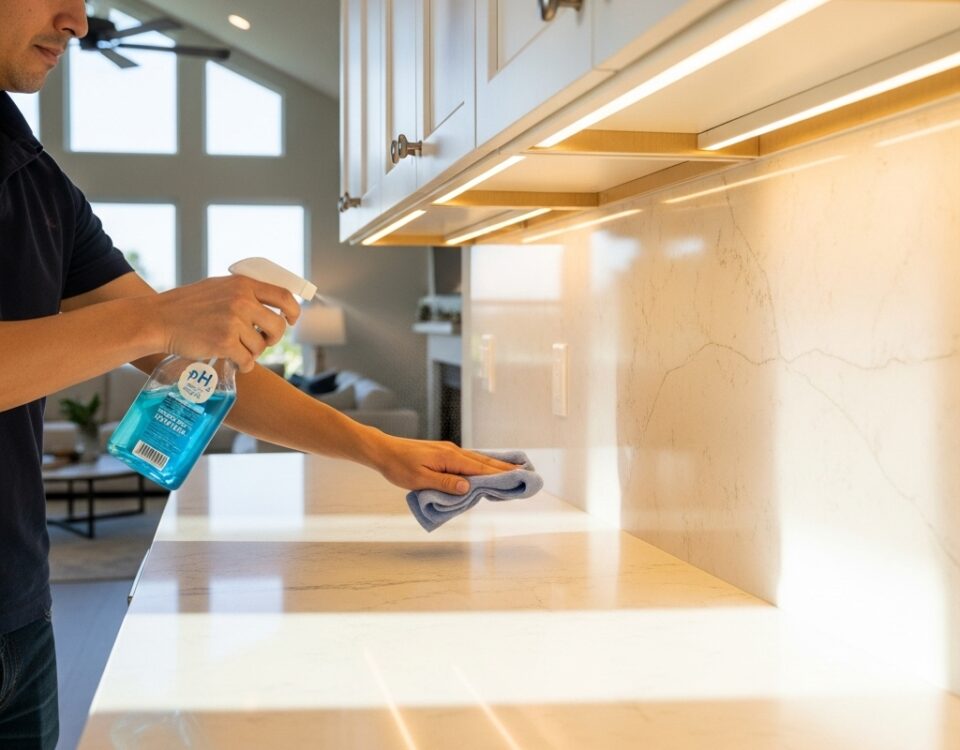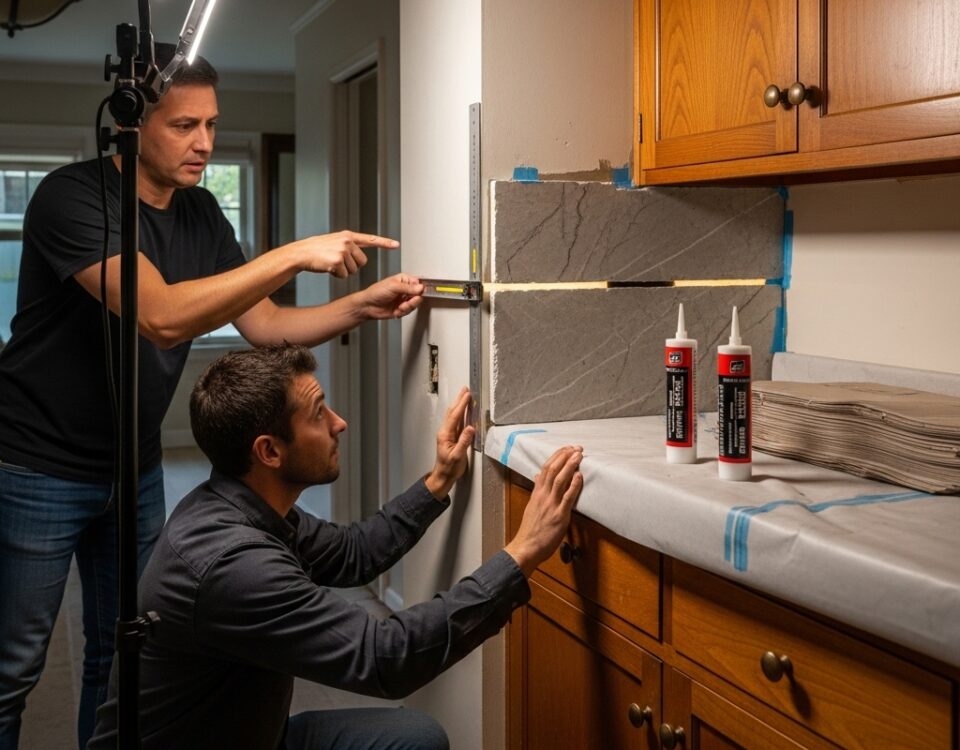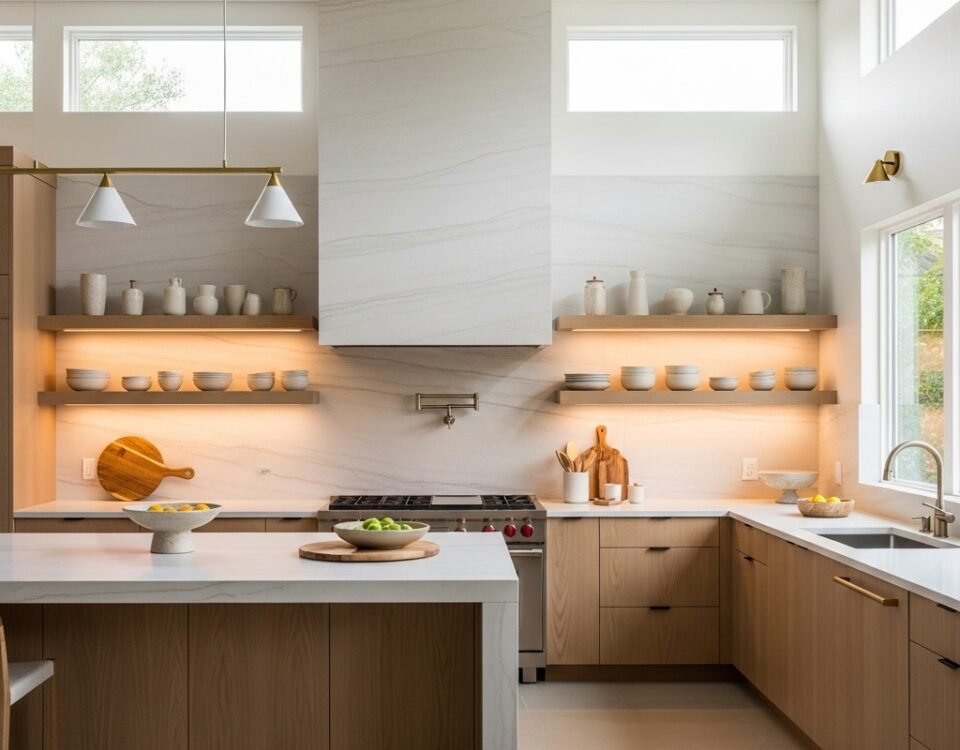The Art of Custom Vanity Top Design: Why It’s Worth Considering
February 6, 2024Custom Shower Remodel Ideas: Tailoring Your Space to Perfection
February 9, 2024When it comes to selecting the perfect backsplash material for your kitchen or bathroom, the choices can feel endless. Among the myriad of options, porcelain and quartz stand out for their durability, aesthetic appeal, and ease of maintenance. This article delves into the characteristics, benefits, and considerations of both materials to help you make an informed decision.
Porcelain: Elegance Meets Versatility
Characteristics and Benefits
Porcelain tiles are renowned for their versatility and wide range of designs. Manufactured from fine clay at high temperatures, these tiles boast a dense and durable surface that is resistant to stains, scratches, and moisture. Porcelain offers a plethora of design options, from mimicking natural stone and wood to vibrant patterns and colors, making it easy to match any decor style.
Maintenance and Considerations
One of the biggest advantages of porcelain backsplashes is their low maintenance. They are easy to clean with just water and mild detergent and do not require sealing. However, installation can be challenging due to the tile’s hardness, often necessitating professional help. Additionally, the grout lines between tiles may require periodic cleaning to prevent discoloration.
Quartz: Durability and Consistent Beauty
Characteristics and Benefits
Quartz is an engineered stone composed of natural quartz crystals and polymer resins, which provide a non-porous and resilient surface. Unlike porcelain, quartz offers a more uniform appearance, delivering consistent color and pattern throughout. It’s highly resistant to stains, scratches, and bacteria, making it an excellent choice for busy kitchens and bathrooms.
Maintenance and Considerations
Quartz backsplashes are incredibly easy to maintain, requiring no sealing and simple cleaning with soap and water. The seamless nature of quartz panels or slabs can offer a sleek and contemporary look, with fewer grout lines than tiled backsplashes. However, quartz can be susceptible to damage from excessive heat, so caution should be used with hot pots and appliances. Additionally, the cost of quartz can be higher than porcelain, reflecting its durability and aesthetic qualities.
Conclusion: Making the Right Choice for Your Home
Both porcelain and quartz offer unique benefits for a backsplash application. The choice between them depends on your priorities, whether it’s the versatility and range of designs offered by porcelain or the durability and uniform beauty of quartz. Consider your budget, design preferences, and practical needs to determine which material best suits your home renovation project. Ultimately, both materials can add significant value and appeal to your kitchen or bathroom, making them excellent choices for a backsplash remodel.




